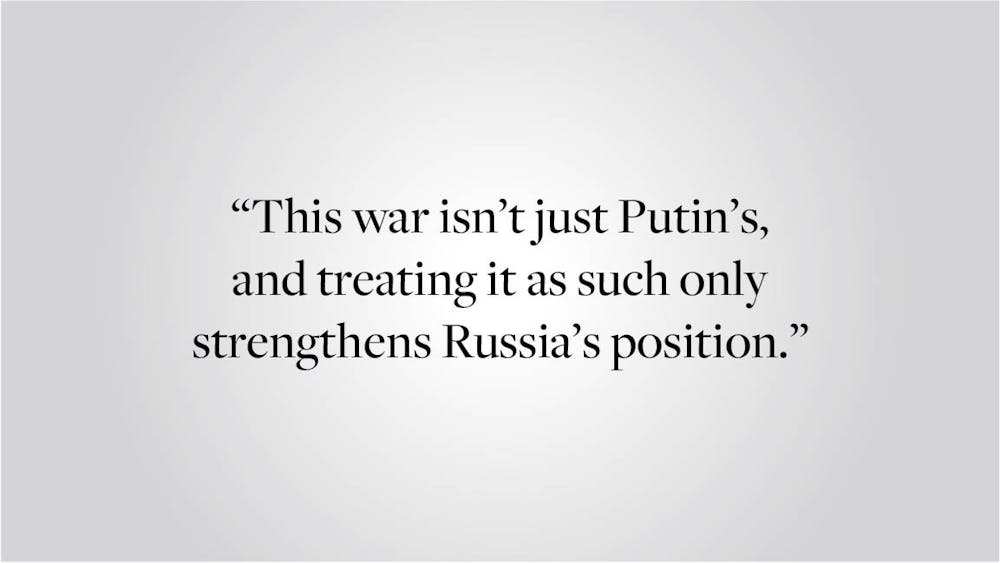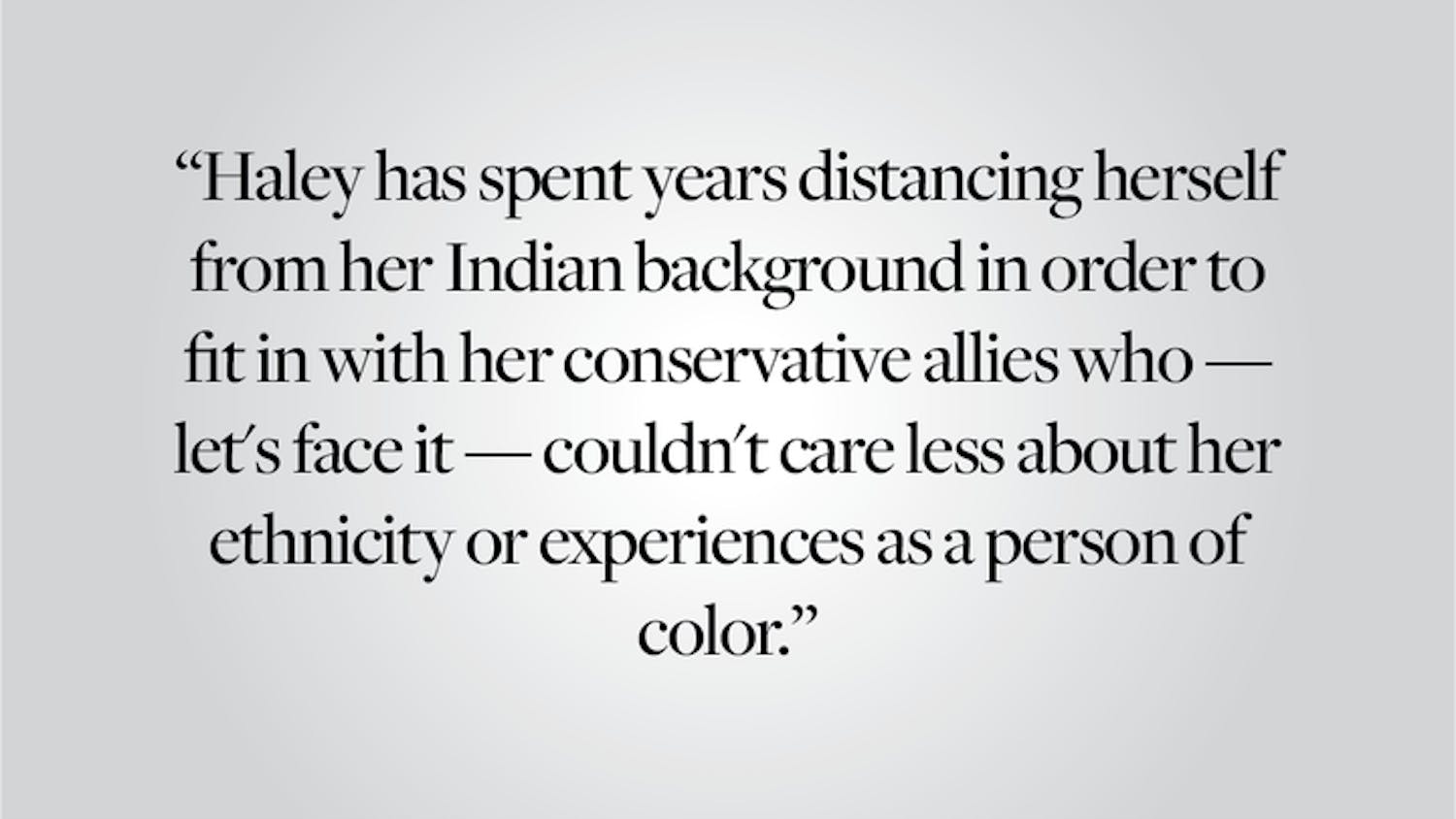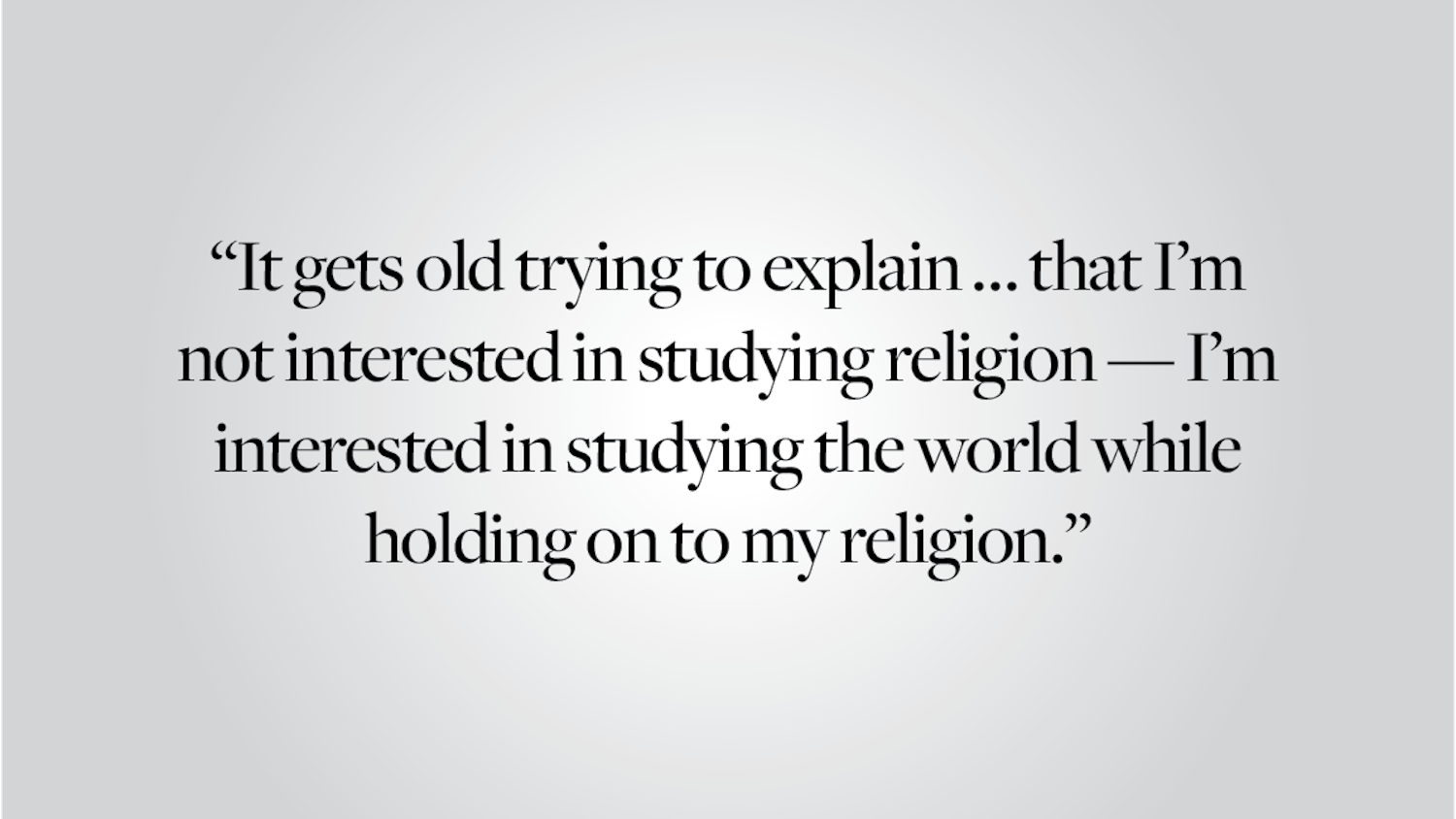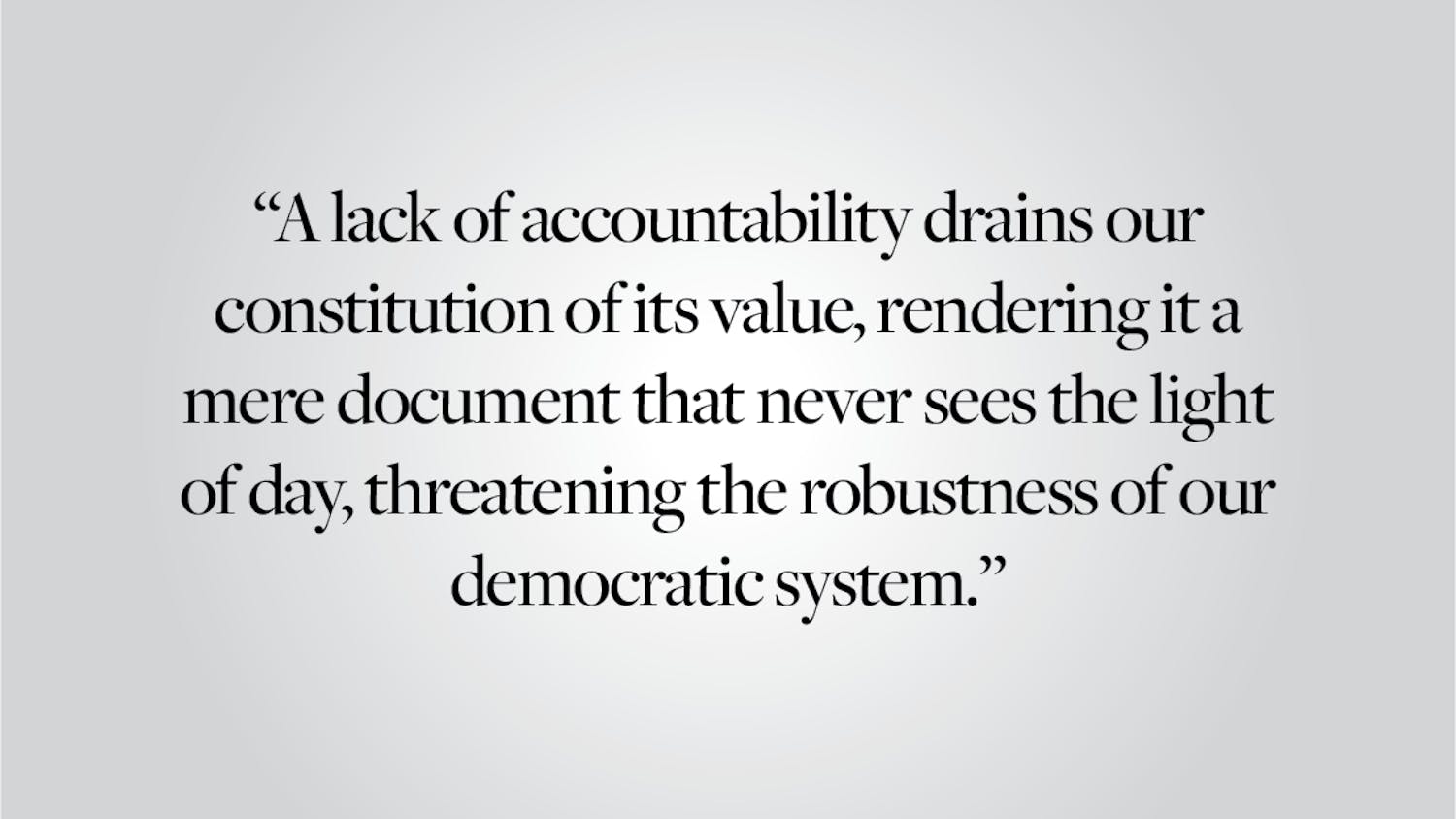As I walked the streets of my hometown of Mariupol, Ukraine this summer, I saw a poem painted on a wall. Part of it went like this: “Now every one of us has an empty piece of luggage in hand / In that luggage there are ashes gathered in the crosshairs.” Now, as Russian forces bombard the city as part of their invasion of Ukraine, this poem has become a harsh reality. Catastrophic destruction has left only ashes for inhabitants of Mariupol to collect before leaving, provided that they are even able to flee. My family is still in the city, with no internet connection and limited supplies of food and water, facing endless shelling of civilian property. Now, with war raging, many in the West have placed the blame squarely on Russian President Vladimir Putin. But this war isn’t just Putin’s, and treating it as such only strengthens Russia’s position.
The Russian invasion of Ukraine is brutal and inhumane, likened by Ukrainian President Volodymyr Zelenskyy to the siege of Leningrad in World War II. There have been countless casualties, many of them consequences of actions by the Russian military that diplomats have characterized as war crimes.
The war has a cultural dimension as well. Putin has been continuously promoting a false narrative that the Russian and Ukrainian people are one and the same. He has twisted historical facts and falsely claimed that there is a genocide of ethnic Russians in eastern Ukraine to justify his invasion. I call myself Ukrainian, even though I am half Russian and half Armenian by heritage, and I am deeply concerned that Putin may rewrite or erase my nation's history.
When I talk about this situation with others, after accepting their condolences, we usually agree that Putin is cruel and in the wrong. Unfortunately, this is where the conversation often stops. Very few proceed to condemn anyone else as part of this evil. I see where these people are coming from. Blaming ordinary Russian citizens might feel unjustified, given Russian propaganda and restrictions on information. At the same time, we should not entirely deny the agency of ordinary Russians in changing or at least counterbalancing their own government — for example, thousands protested the invasion in major Russian cities, with many detained.
I definitely wouldn’t go as far as to condemn every Russian citizen, as I have many very supportive Russian friends. I am not advocating for interrogating Russian friends about their beliefs or, even worse, for hating them before figuring out where they stand. What bothers me more is people’s unwillingness to see the gray area between blaming solely Putin and blaming every Russian. Yes, not every Russian supports Putin, but we cannot turn a blind eye to the 71% of citizens who, according to independent Russian polling agency the Levada Center, do support him.
This issue can be seen even at the highest levels of influence. Some Western leaders such as German Chancellor Olaf Scholz call Putin the sole perpetrator of the war. Multinational companies have continued selling “essential goods” — which happen to include lip gloss and ice cream — in the name of helping the Russian public. I believe that both of these statements stem from the same sort of flawed reasoning I describe above. Attitudes like these from Western companies and politicians provide the Russian government with the necessary means to continue the war against Ukraine: They undermine sanctions by painting the Russian people as undeserving of blame.
Wrongly treating Putin as the sole responsible party in this war leads to an incoherent and insufficient response by Western governments and companies. The ultimate cost comes in the form of regional and global instability, the setting of a dangerous precedent — that bullies like the Russian government and its accomplices can do whatever they want without consequence — and the lost lives of ordinary Ukrainian citizens. Hate toward a whole nation is precarious, mistaken and simply the wrong thing to do — I do not ask you to hate anyone at all. Rather, my point is that the people who are dropping bombs on unprotected civilians should be rightfully punished. The same goes for everyone who enables them, by their action or by their inaction.
Artem Agvanian ’25 can be reached at artem_agvanian@brown.edu. Please send responses to this opinion to letters@browndailyherald.com and other op-eds to opinions@browndailyherald.com.





